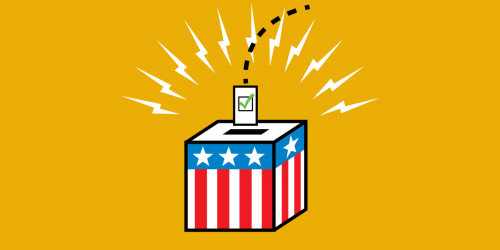Sen. Ron Wyden’s new proposal to protect the integrity of U.S. elections, the Protecting American Votes and Elections (PAVE) Act of 2019, takes a much needed step forward by requiring a return to paper ballots.
The bill forcefully addresses a grave threat to American democracy—outdated election technologies used in polling places all over the country that run the risk of recording inaccurate votes or even allowing outside actors to maliciously interfere with the votes that individuals cast.
The simple solution: paper ballots and audits of paper ballots. EFF along with security experts have long-supported this approach—arguing that the gold standard for security of our election infrastructure is paper ballots that are backed by risk-limiting audits (an audit that statistically determines how many votes need to be recounted in order to confirm an election result). As Sen. Kamala Harris, one of the fourteen co-sponsors the bill, recently said, “Russia can’t hack a piece of paper.”
The last two decades have shown that the touchscreen and other machines used at polling places to cast votes are not only susceptible to tampering, but also that the outdated software and poorly configured settings lead to countless problems like inaccurately recording votes or large drop-offs on down-ballot races.
Sen. Wyden’s bill sets out necessary steps to make sure that state and local governments can respond to the election security concerns raised by experts:
- It requires paper ballots and risk-limiting audits in federal elections.
- It allocates $500 million dollars to states to buy secure machines that can scan paper ballots.
- It allocates an additional $250 million dollars to states to buy ballot-marking devices to be used by voters with disabilities or who are face language barriers.
- It bans voting machines from connecting to the Internet.
- It gives the Department of Homeland Security the authority to set mandatory national minimum cybersecurity standards for voting machines, voter registration databases, electronic poll books, and election reporting websites.
- It empowers ordinary voters to enforce these critical safeguards with a private right of action.
The PAVE Act is supported by a large coalition of senators and a companion bill has been introduced in the House of Representatives. The foreign interference in the 2016 election stands to be repeated in 2020 if Congress does not act now to address the numerous concerns with the integrity of our voting system repeatedly identified by the information security community.











